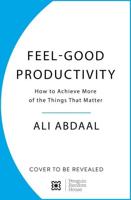Publisher's Synopsis
Unlock the Secrets to Understanding and Nurturing Your PDA Toddler with Compassion and Confidence
Is your toddler intensely resistant to everyday requests, even ones they enjoy? Do they experience extreme anxiety when asked to follow routines, transition between activities, or complete simple tasks? If so, they may exhibit traits of Pathological Demand Avoidance (PDA) autism, a lesser-known yet profoundly impactful profile on the autism spectrum.
In Pathological Demand Avoidance Autism in Toddlers, you'll find a comprehensive, compassionate, and practical guide to recognizing and supporting a child with extreme demand avoidance, high anxiety, and an intense need for autonomy. Unlike traditional autism parenting approaches, raising a PDA child requires flexibility, collaboration, and an entirely new way of communicating, one that prioritizes trust, emotional safety, and low-demand strategies.
Inside this essential guide, you'll discover:
- Early signs and symptoms of PDA autism-what to look for in toddlers and how to differentiate PDA from classic autism, ADHD, and Oppositional Defiant Disorder (ODD).
- The neuroscience behind demand avoidance-why seemingly simple requests trigger overwhelming stress and resistance.
- Gentle parenting strategies that work-how to communicate, set boundaries, and encourage cooperation without triggering meltdowns.
- Managing daily challenges with a PDA child-flexible routines, handling transitions, mealtime struggles, bedtime battles, and social interactions.
- How to advocate for your PDA child-working with doctors, therapists, teachers, and caregivers to ensure they receive the right support.
- Self-care for parents-how to prevent burnout, navigate social judgment, and build a support network that truly understands PDA parenting.
Why This Book is Different:
Unlike mainstream parenting books, this guide focuses specifically on PDA autism and provides strategies that are backed by real-world experiences and expert insights. Whether you are seeking a diagnosis, struggling with daily routines, or searching for a community that truly understands PDA, this book will empower you with the knowledge, tools, and confidence to support your child in a way that respects their unique needs and fosters long-term growth.








